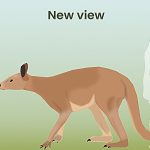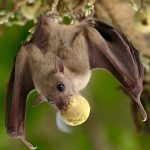Incredible lion brothers make record-breaking swim in dangerous waters
A remarkable swim by two lion brothers across a predator-filled African river has set a new record, documented in a study by Griffith University...
These three animals can detect disease in humans
When it comes to accurately diagnosing a disease, you might think you need expensive, high-tech machinery and equipment capable of looking deep beneath the...
Dogs vs. Pigs: Only dogs form true bonds with humans, study finds
Researchers at the ELTE Department of Ethology in Budapest have discovered that while pigs are social animals, they do not form the same attachment...
Ancient large kangaroo moved mainly on four legs, shows study
A type of extinct kangaroo that lived during the Pleistocene around two and a half million to 10 thousand years ago, known as the...
Ants on the move: How invasive ants hitchhike on cars
Invasive ants have found a surprising new way to travel: hitchhiking on everyday vehicles.
Research shows that these ants pack up their entire colony, including...
How to stop cats from scratching your furniture
Many cat owners know the frustration of finding torn cushions, carpets, and couches due to their cats' scratching.
While scratching is a natural behavior for...
Wild bats show surprising cognitive abilities once thought exclusive to humans
Researchers at Tel Aviv University have discovered that wild Egyptian fruit bats possess high cognitive abilities previously believed to be unique to humans.
This study,...
You don’t need to be perfect: New study shows animals use “good enough” strategies...
For decades, scientists have thought that animals, including humans, use the best possible strategy to complete tasks like finding food or navigating a maze.
These...
World’s smallest elephants declared endangered: urgent action needed to save Bornean elephants
A newly confirmed subspecies of elephant, the Bornean elephant, has been listed as endangered, putting it at risk of extinction.
These elephants are smaller than...
Scientists map the genome of the last wild horse species
Researchers from the University of Minnesota have achieved a significant milestone by mapping the complete genome of the Przewalski's horse, the last wild horse...










